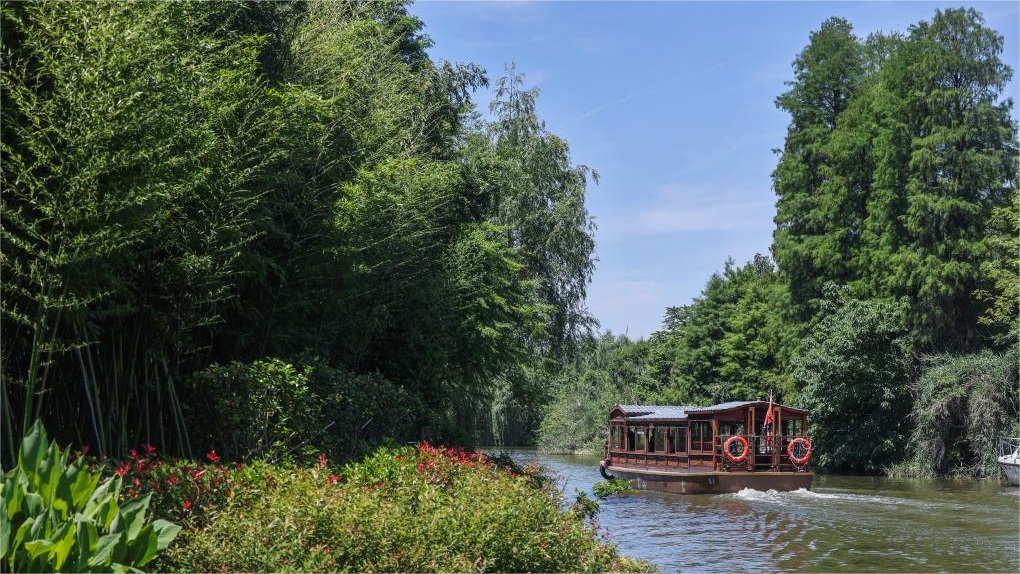Inheriting indissoluble bond between China and Hungary, continuing the tale of friendship
Chinese President Xi Jinping arrived at Budapest Airport in Budapest, capital of Hungary, on the evening of May 8 local time. He received a warm welcome from Hungarian Prime Minister Viktor Orban, who greeted him with the words, "Welcome home!"
Reports by overseas media emphasized the indissoluble bond between China and Hungary, highlighting their rich historical ties, common cultural traits, and strong emotional connection.
In a signed article by President Xi titled "Embarking on a Golden Voyage in China-Hungary Relations" published on May 8 in the Hungarian newspaper Magyar Nemzet, the Chinese President said, "I very much look forward to returning to your country to renew our friendship."
“We came from east. When somebody from east is coming to Hungary, especially with the high civilization for thousands of years as China, it always has a special emotional element of that meeting," said Orban in an interview with China Media Group (CMG).
In addition to inter-governmental relations, China and Hungary have a long history of cultural exchanges. The Hungarian-Chinese bilingual school in Budapest is the only full-time public school in Central and Eastern Europe that uses Chinese and the local language for instruction.
According to The Budapest Times, Hungary currently has five Confucius Institutes, which have nurtured numerous individuals who now serve as inheritors of this friendship and facilitate cultural exchange between the two countries.
Through the medium of language, they continue to contribute to the narrative of amicable relations between the people of the two countries.
Hungary and China have similarities in their eating and drinking habits. According to Magyar Nemzet, both countries have a tradition of consuming soups and alcoholic beverages.
Viktória Herencsár, a Hungarian instrumentalist and the president of the Cimbalom World Association, has observed that the Hungarian cimbalom and the Chinese musical instrument Yangqin share a common ancestor.
In an interview with The Budapest Times, József Betlehem, Vice Rector for General Affairs, Connections and Strategic Affairs, the University of Pécs, Hungary, noted that listening to Chinese music makes him feel that cultural exchanges can transcend any barrier.
Tibor Navracsics, Hungary's minister for regional development, mentioned that Hungary and China both follow a naming convention in which family names come before given names. He said, “We first name the family, the group of emotional links, which gives your identity and your personality.”
The profound friendship between China and Hungary, deeply rooted in history and thriving in the present, represents a convergence of civilizations and emotions, as well as an interweaving of past and future.
2024 marks the 75th anniversary of the establishment of diplomatic relations between China and Hungary.
The two sides should continue to support the teaching of the two countries' languages and strengthen people-to-people and cultural exchanges, President Xi pointed out during the talks with Prime Minister Orban.
In the future, China and Hungary will continue to explore the role of culture as an "adhesive," strengthening the common cultural foundation between the two countries and ensuring steady and sustained growth of China-Hungary relations on a golden voyage.
Zhou Ting is a professor at the Communication University of China.
Photos
Related Stories
- Hungarian business student looks to create value for China, Hungary
- Green development injects new impetus into China-Hungary mutually beneficial cooperation
- 'New starting point' for 75-year ties
- Upgraded China-Hungary ties boost bilateral cooperation and beyond
- Peng Liyuan visits Hungarian-Chinese bilingual school
- China allows the import of Hungarian fresh cherries that meet relevant requirements
- Hungarian-Chinese school in Budapest fosters friendship and cultural understanding
Copyright © 2024 People's Daily Online. All Rights Reserved.









